Orientalism
All topics-
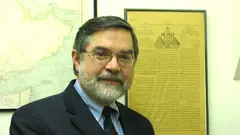 Marriage, religion and love in Egypt
Marriage, religion and love in EgyptThe long road to modernising marriage
American historian Kenneth M. Cuno talks to Qantara.de about the decline of polygamy in Egypt, the emergence of love when choosing a marriage partner, and what role Muhammad Abduh and Qasim Amin played in promoting new ideas about marriage and the family
-
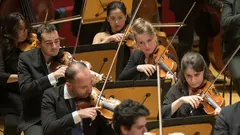 Edward W. Said Days in Berlin
Edward W. Said Days in BerlinMusic – facilitator of intercultural dialogue
How can Edward Said's ideas help people better understand Yoko Ono's performance art, pre-colonial rhythms from Africa or the music of Christian missionaries in Japan? The Edward W. Said Days in Berlin marking 20 years since the literary scholar's death explored a whole range of questions. Ceyda Nurtsch reports
-

Edward W. Said Days in Berlin: The legacy of a visionary bridge-builder
With this year's "Edward Said Days" marking the 20th anniversary of the death of the Palestinian-American literary scholar, the Berlin Barenboim-Said Academie and the Pierre Boulez Hall opened their 2023/24 season on 26 August 2023. By Ceyda Nurtsch
-
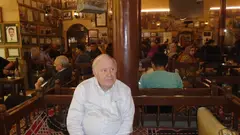 Udo Steinbach on Europe and the Gulf
Udo Steinbach on Europe and the GulfLet's have none of the old arrogance
Middle East expert Udo Steinbach has been advocating closer relations with the Gulf states for years. Genuine interest in regional development, however, needs to look beyond the stereotypes. Birgit Svensson spoke to him in Baghdad
-
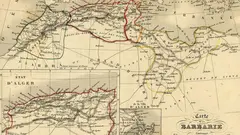 The origins of the Maghreb
The origins of the MaghrebWas the Arab Maghreb a French invention?
The book "The Invention of the Maghreb: between Africa and the Middle East" prompts us to review basic terminology. This includes terms that we use almost every day as if they are definitive by virtue of geography, history and culture, such as "the Arab Maghreb", "North Africa", "the Middle East" and "sub-Saharan Africa". Shady Lewis Botros read the book
-
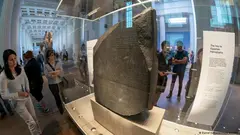 Hieroglyphs exhibition at the British Museum
Hieroglyphs exhibition at the British MuseumMuseums with guilt complexes
To celebrate the bicentenary of the deciphering of the Rosetta Stone, the British Museum is running an exhibition entitled "Hieroglyphs: unlocking ancient Egypt" until February 2023. While Shady Lewis Botros welcomes the museum's effort to broaden the Eurocentric focus of the exhibition, he says that it "lays bare a critical approach and a potential for revisionism" and remains largely decorative
-
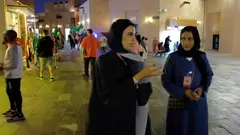 Women's rights in Qatar
Women's rights in QatarDriving emancipation forward
During the World Cup in Qatar, much has been written about the role of women in the Gulf state, yet they themselves rarely get a word in edgeways. Karim El-Gawhary spoke to two Qatari women in Doha
-
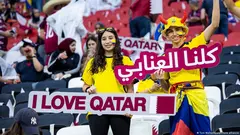 Politics, Qatar and FIFA
Politics, Qatar and FIFAIs criticism of Qatar's World Cup racist?
Locals in the Middle East have said European critics are showing bias and hypocrisy when they condemn Qatar. Observers agree that Qatar has had to deal with more criticism than usual for a World Cup host. Cathrin Schaer and Emad Hassan ask why
-
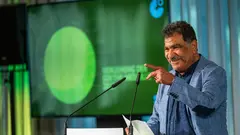 Mohamed Abla awarded Goethe Medal
Mohamed Abla awarded Goethe MedalTelling stories through art
Mohamed Abla is the first visual artist from Egypt to be awarded the Goethe-Institut’s Goethe Medal, Germany’s highest honour in the area of foreign cultural policy. Stefan Weidner sheds some light on the artist’s work
-
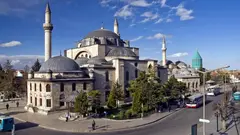 The hidden treasures of Sufism
The hidden treasures of SufismIn the footsteps of Rumi
Rumi's poems, though generally stripped of their Islamic symbolism, are hugely popular around the world. Yet Islamic mysticism is still very much at the heart of these verses. Marian Brehmer has spent more than ten years exploring the form Sufism assumes today. By Lisa Neal
-
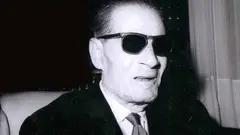 Taha Hussein, a biography
Taha Hussein, a biographyModern Egypt's great pioneer
Taha Hussein (1889-1973) is considered one of Egypt's most influential intellectuals and cultural politicians. With his biography "The Last Nahdawi", historian Hussam Ahmed provides a profound insight into the contradictions in the life of the great pioneer of Egyptian modernity. By Shady Lewis Botros
-
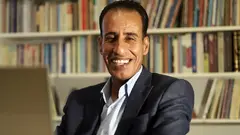 Interview with Jordanian novelist Jalal Barjas
Interview with Jordanian novelist Jalal Barjas"Some Arab writers present distorted images of their societies"
Jordanian writer Jalal Barjas' novel "Notebooks of the Bookseller", which won this year's Booker International Prize for Arabic Fiction, was celebrated at a symposium during the Berlin International Literature Festival in September. A large number of Germans and Arabs interested in Arabic literature attended. On the sidelines, journalist Rim Najmi caught up with Jalal Barjas